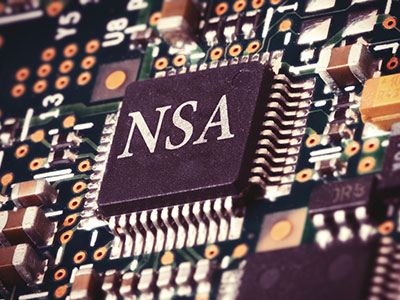
As post-Snowden America well knows, for some years now the National Security Agency (NSA) has been collecting bulk telephone metadata under the authority of Section 215 of the PATRIOT Act and aggregating it into data banks subject to government query. Under the “business records” provision of this law, the NSA has been collecting all kinds of information about the numbers you dial, how often you dial them, and how long your conversations are—and it’s been doing so for years.
ACLU v. Clapper, a case challenging the legality of the program, arrived at the United States Court of Appeals for the Second Circuit last year after the Southern District of New York concluded that it didn’t have to decide whether the program passed statutory or constitutional muster—because the mass surveillance program wasn’t even subject to judicial review.
In a resounding victory for the ACLU, the appeals court vacated the SDNY decision last Thursday. In reflecting on the history of American surveillance, the court recalled that the government’s Watergate-era surveillance activities led to the Keith case (U.S. v. U.S. District Court for the E.D. Mich., holding that a warrant is necessary to conduct electronic surveillance even where “domestic security” is involved); the Church Committee; and ultimately the Foreign Intelligence Surveillance Act and the FISA Court. In other words, and ironically, the trail of developments that led to the FISC authorizing the NSA’s surveillance program was originally rooted in the Supreme Court’s command to apply the Fourth Amendment to domestic surveillance.
In first rejecting the government’s claim that the statute authorizes the broad sweep of its program, the court disagreed with the government’s claim that its massive surveillance program produces “relevant” metadata, despite the fact the collection includes a nation’s worth of telephone metadata year after year. The court found this “expansive concept of ‘relevance’” to be “unprecedented and unwarranted,” and the relevant statutes unequal to the task of authorizing “anything approaching the breadth of the sweeping surveillance at issue here.” Ultimately, the court found, the government’s position would mean that “any records that might ever be of use in developing any aspect of that investigation are relevant to the overall counterterrorism effort”—which means all call records, of all Americans, all the time. And, as the court noted, this exploit would read the concept “investigation” entirely out of the statute.
Finally, the court turned to appellants’ constitutional claims, finding the Fourth Amendment arguments “potentially vexing.” While the ACLU claimed a reasonable right to privacy in the telephone records, the government took the long-established view that individuals have no right to privacy in the records—thus articulating the so-called “third party doctrine,” an area of Supreme Court jurisprudence that is now, as the Second Circuit noted, in significant turmoil. In considering the rapidly-evolving meaning of “privacy” in a digital age, the court evoked Justice Sotomayor’s now-famous Jones concurrence, finding that the third party doctrine as traditionally conceived is “ill suited to the digital age, in which people reveal a great deal of information about themselves to third parties in the course of carrying out mundane tasks.” And so it is with telephone metadata, argued appellants, who noted that the NSA program potentially enables the 24-hour surveillance that concerned some members of the Jones Court.
Because the Second Circuit decided that the program violated Section 215, it did not decide the constitutional issue, leaving its concerns to be addressed legislatively. But the opinion highlights the permeability of “personal privacy” in 2015. TSW will watch developments closely

